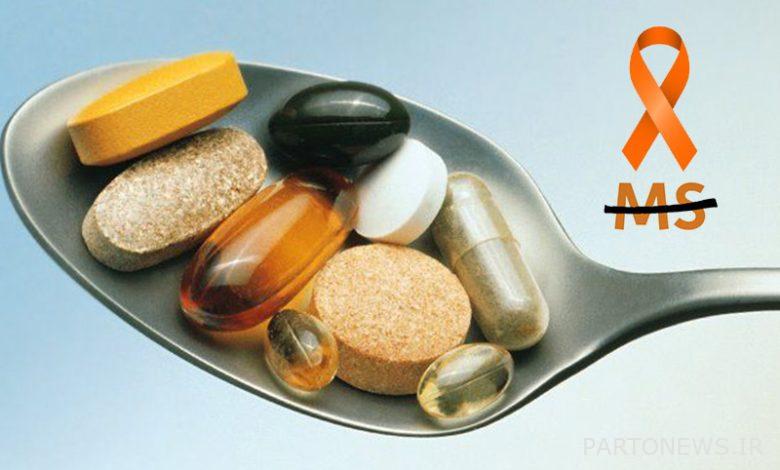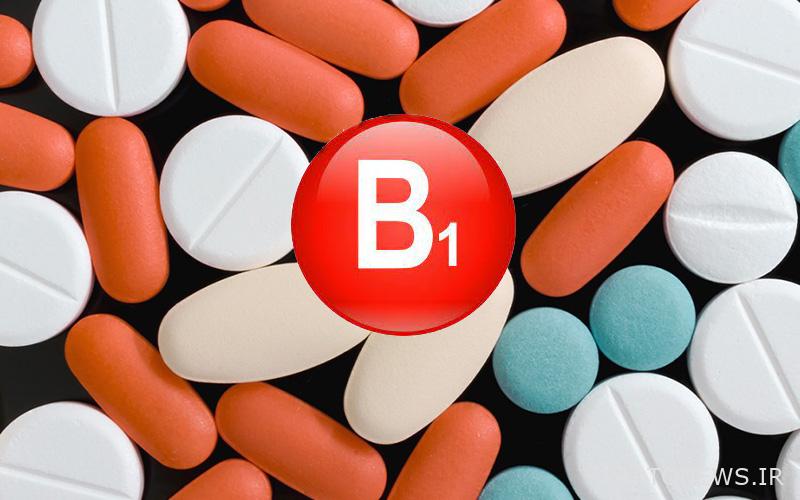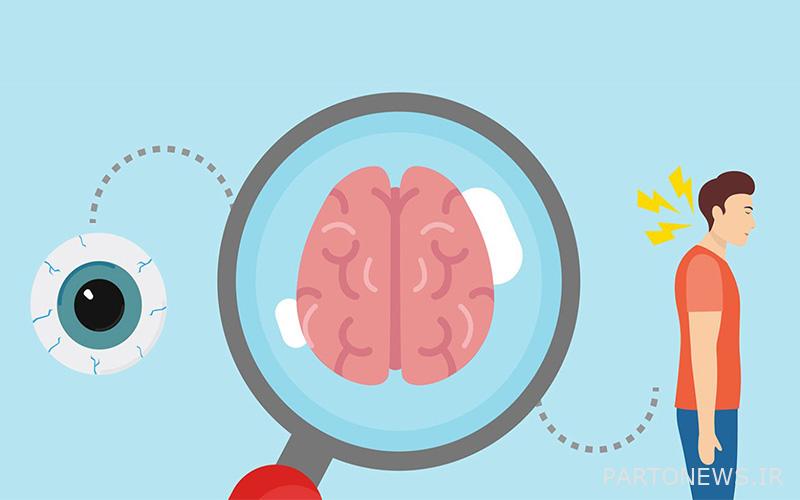What are the best supplements for people with MS?

Multiple sclerosis, or MS, is a chronic disease that directly affects the central nervous system. The symptoms of this disease can be mild or severe depending on its progression. Unfortunately, there is currently no definitive cure for MS. The treatments and therapies used for MS usually target the symptoms of the disease because the exact cause of the disease is not known. Symptoms of MS are caused by a disconnection between the brain and the nerves. In this article, we will first introduce you to MS and then we will introduce the best supplements for MS.
What we read in this article
Symptoms of MS
As the disease progresses, the symptoms of MS will worsen. The most common symptoms of this disease are:
- Vision problems
- Weakness
- Memory problems
- Impaired balance and coordination of the body
- Tingling or numbness of the limbs
Some treatments can greatly improve the unpleasant symptoms of MS. If you have MS, talk to your doctor before taking any dietary supplements or even vitamins.
The best supplements for MS
Useful vitamins for MS patients include the following:
The role of vitamin D in MS
Studies show that low levels of vitamin D in people with MS may slow the progression of the disease and reduce the risk of new lesions. Vitamin D is essential for healthy bones, muscles, nerves and the immune system. The best source of vitamin D is sunlight, but vitamin D tablets can also be used. Fatty fish and foods fortified with vitamin D are also good sources of vitamin D. But since research in this field is not complete, you must consult a doctor before using this vitamin.
Vitamin A for people with MS
Supplements for people with MS can include vitamin A. This vitamin is fat soluble and is involved in the health of vision, fertility and the immune system. Vitamin A can be found naturally in a variety of foods such as leafy vegetables, meat, fruits and dairy products or supplied to the body through supplements. The antioxidants in vitamin A may be helpful for MS, but more research is needed.
Vitamin B1 and MS
Vitamin B1, also known as thiamine, plays a vital role in the proper functioning of the brain. It is also good for healthy metabolism and the function of nerves, muscles and heart. Thiamine deficiency may be associated with a variety of neurodegenerative conditions, including MS. Weakness and fatigue are one of the symptoms of deficiency of this vitamin. Deficiency of this nutrient can be compensated by consuming nuts, seeds, legumes, whole grains, eggs, meat or vitamin B1 tablets.

Vitamin B6 and MS
Vitamin B6 deficiency can be linked to abnormal brain function, depression, confusion and kidney problems. Research on vitamin B6 and MS is limited, but limited studies suggest that vitamin B6 tablets may play a role in reducing the symptoms of MS; Therefore, this vitamin can probably be mentioned as one of the strengthening supplements for MS. Note that vitamin B6 in high doses can be toxic to the brain.
The role of vitamin B12 in MS
People with MS may be more likely to be deficient in vitamin B12; So vitamin B12 pills can be a good option for them. This vitamin is involved in the function of nerve cells, red blood cells and the brain, and its deficiency will lead to memory impairment, confusion, brain damage, weakness and numbness in the organs of the body.
Vitamin C and MS deficiency
Vitamin C or ascorbic acid plays an important role in the functioning of the immune system. This vitamin has antioxidant properties and people with MS may have difficulty absorbing it. Some research has shown that ascorbic acid is good for eye health and prevention Macular degeneration And cataracts are very effective. Some early research suggests that vitamin C antioxidants may help protect people with MS from nerve damage, but more research is needed.
Vitamin E and its role in MS
Vitamin E is a fat-soluble nutrient that has extraordinary antioxidant properties. It is necessary to use this vitamin for the health of the immune system and to prevent blood clots. People with MS may have low levels of this vitamin in their body, but whether or not this vitamin should be used in this disease still needs further research.

The role of selenium in MS
Selenium is an antioxidant mineral found in seafood, legumes, whole grains, meat and dairy products. People with MS may have lower selenium levels than other people. Selenium plays an important role in eye health and the immune system and may even be successful in preventing cancer. However, the purchase of selenium tablets in people with MS must be done in consultation with a doctor.
Zinc consumption in patients with MS
Strengthening supplements for people with MS can also include zinc supplements. Zinc is an essential mineral for the body that helps strengthen the immune system and may also protect against neurological diseases.
The effect of calcium and magnesium in MS
Calcium is a vital mineral for the body that plays an important role in bone health. It is better to use calcium and vitamin D together because vitamin D improves the absorption of calcium in the body. Magnesium also plays a role in many bodily functions and its deficiency causes weakness, fatigue, muscle cramps and numbness. Magnesium and calcium deficiency can accelerate the progression of MS, but should not be used as a supplement without consulting your doctor.
Other boost supplements for MS
Here are some other herbal supplements and medications that may be helpful for MS:
Ginkgo biloba for MS
Ginkgo biloba is an herbal extract with antioxidant properties that is thought to play a significant role in improving memory. This plant may also be effective in relieving pain and improving visual health. However, there is a possibility of drug interaction with some drugs, and patients with MS should use it in consultation with their doctor.
Sanib al-Tayyib or Valerian
In traditional medicine, this plant is used to relieve sleep disorders, headaches and.. Research has shown different results on the effect of valerian on MS; For this reason, more studies are needed.
Probiotics are booster supplements for MS
Probiotics are bacteria that are thought to be beneficial to the body. These bacteria are similar to microorganisms in the body. Probiotics can be found in dairy products such as yogurt as well as dietary supplements such as probiotic pills. Probiotics have anti-inflammatory properties and improve the health of the immune and nervous systems; For this reason, it may be useful for patients with MS.
Other supplements for MS include: Agrimony, blueberry leaf, chamomile, dandelion root and leaf, ginger, ginseng, licorice, sage, mint, turmeric, cranberry, oil Fish liver and… noted. None of the above mentioned cases of MS should be used without consulting a doctor.

Use of multivitamins and minerals in patients with MS
Studies show that taking a mineral multivitamin in a person with MS may slow the progression of the disease by compensating for the lack of nutrients. Certainly vitamin deficiencies can contribute to the worsening of MS symptoms. However, this supplement should only be used in consultation with your doctor. Many experts believe that a multivitamin can be one of the best supplements for MS.
Taking Powerfit tablets or Shiitake mushrooms in people with MS
Powerfit capsules are mostly used to strengthen the immune system as well as treat genital warts. The use of this product or shiitake mushroom does not seem to have a particular advantage in relieving the symptoms of MS. There is also usually no drug interaction between MS pills and shiitake mushrooms; However, this type of dietary supplement can only be used with a doctor’s advice.
Concluding remarks
In this article, we will introduce you to the best supplements for MS. Be aware that medications used for MS can interact with many supplements; Be sure to consult your doctor before any action.
Please rate this article
[مجموع: ۱ میانگین: ۵]


